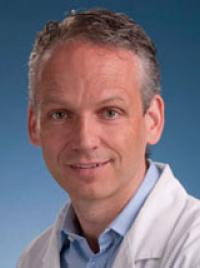
Dr. Hofer obtained his medical degree from the University of Amsterdam in 1992. He then completed his PhD in the Department of Surgical Research, Academic Medical Center, Amsterdam. He obtained his board certification in Plastic Surgery from the Netherlands in 2000 and became the first Plastic Surgeon to be awarded the highly prestigious Dutch Cancer Society clinical fellowship, which funded his one-year Microsurgery Research fellowship at the Bernard O’Brien Institute of Microsurgery at the University of Melbourne in Australia. Dr. Hofer was an Associate Professor in the Department of Plastic and Reconstructive Surgery, Erasmus Medical Center, Rotterdam and the Head of Plastic and Reconstructive Surgical Oncology from 2001 to 2007.
Dr. Hofer is the former Division Head of Plastic Surgery at University Health Network and Mount Sinai Health System. He holds the Wharton Chair in Reconstructive Surgery and was the recipient of the Munk Reconstructive Surgery Innovation Fund to develop the Augmented Reality in Surgery Lab in collaboration with TECHNA at UHN. He is the immediate previous Editor-in-Chief of the Journal of Plastic, Reconstructive and Aesthetic Surgery (JPRAS).
Dr. Hofer is internationally recognized for his outstanding contributions in the areas of clinical service, education, and research. His clinical practice is focused on oncologic reconstructive (micro)surgery with an emphasis on breast reconstruction, sarcoma and head & neck reconstruction.




 https://orcid.org/0000-0002-9653-2946
https://orcid.org/0000-0002-9653-2946